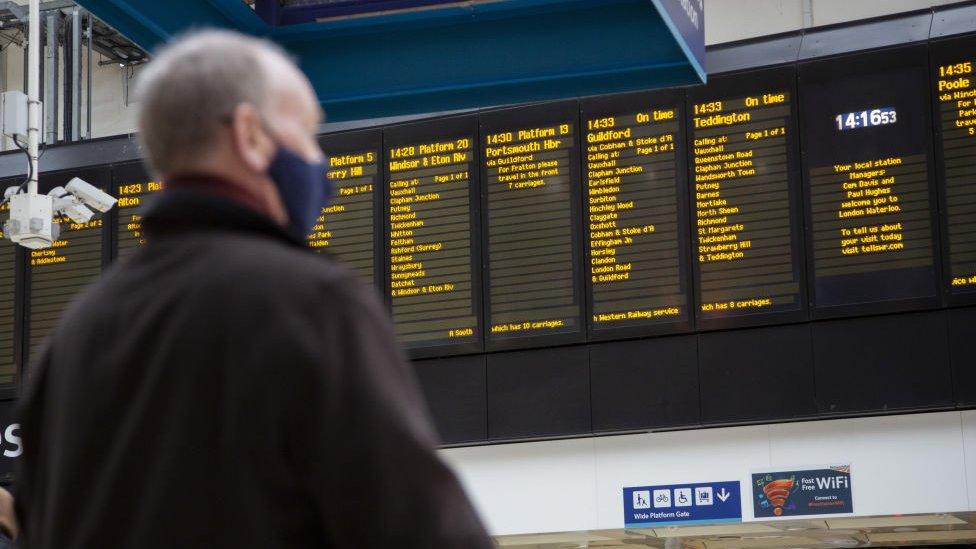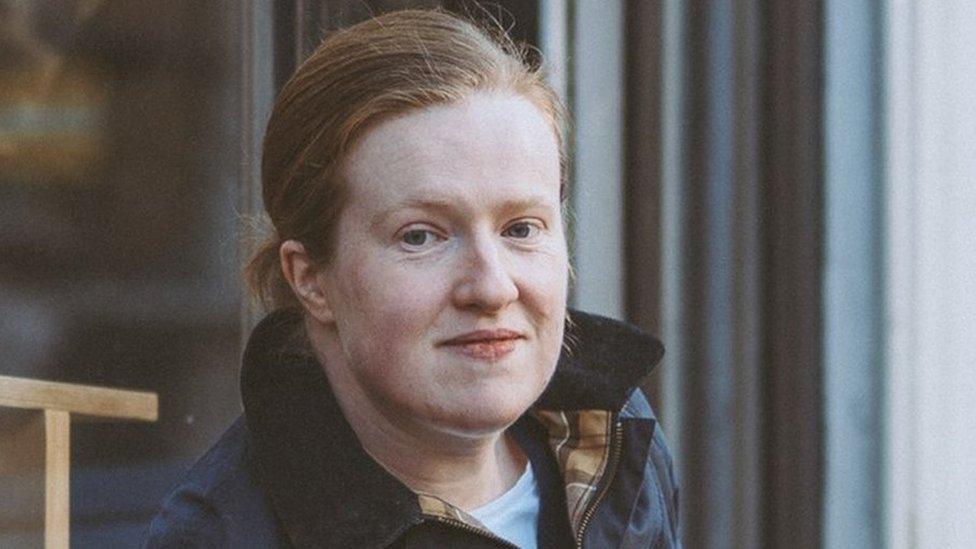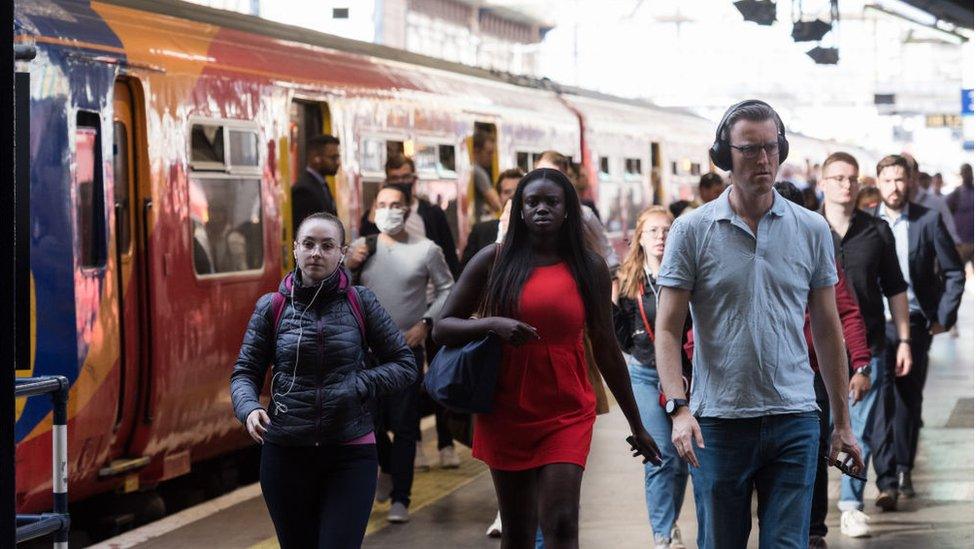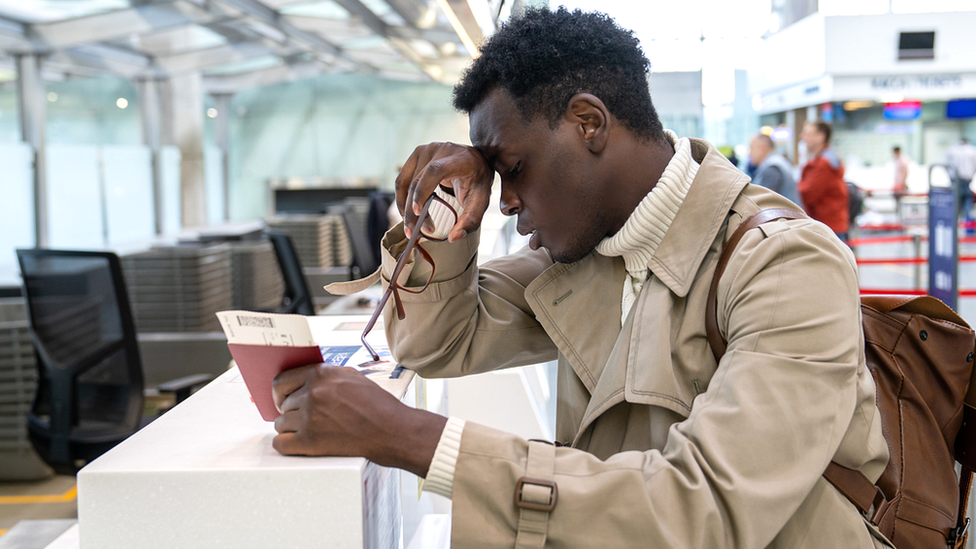'Rail strikes have lost us £500,000 of bookings'
- Published

Millions of people ranging from commuters to people heading to Glastonbury Festival will be affected by this week's rail strikes. Businesses will also be hit, with customers unable to travel or choosing to work from home.
"Since the announcement [of the strikes] we've had cancellations worth more than £500,000," says Tony Matharu, who owns the Blue Orchid Hotels Group.
The chain, which has several hotels in London, serves a mixture of business and leisure travellers, as well as hosting events - with all being hit by cancellations.
The strikes on Tuesday, Thursday and Saturday will see only one in five services running across England, Scotland and Wales, and there will also be knock-on disruption for the rest of the week.
On Tuesday, most London Underground services will also not be running due to strike action.
'Fatal'
Mr Matharu says the uncertainty caused by the strikes has led customers to cancel - even if their train is still running - with many worried they may not be able to get home again.
While some may rebook, others who had been travelling for specific events that are not being rescheduled will not, he adds.
Mr Matharu says the hospitality industry can "ill afford" such losses after the impact of Covid.
"It could prove fatal for some of those trying to recover after two ruinous years," he tells the BBC.

Tony Matharu says his hotels have been hit by a wave of cancellations since the strikes were announced
The strikes will cost the hospitality sector an estimated £540m across the week, with businesses expected to see a 20% drop in sales, according to UKHospitality, which represents the industry.
Its chief executive Kate Nicholls says this is a "huge blow" to businesses, which are already facing challenges including soaring energy prices and staff shortages as they recover from Covid restrictions.
"Our customers and staff rely heavily on public transport to visit our venues, especially in towns and cities, where recovery is proving most difficult," she says.
Lynsey Harley, who runs Modern Standard Coffee, has already seen her orders take a hit because of the strikes.
The company, which is based in Fife, roasts speciality coffee for customers including restaurants and hotels and also has its own cafe in Edinburgh.
Ms Harley says customers in London and other city centres are planning for a 50% drop in trade and had cut their orders as a result.
"We've had customers tell us, we're not going to order next week because we just don't think we're going to need the product," she tells the BBC.
Fortunately some of her losses have been offset by a spike in home orders for coffee this week, with many people now able to work from home as they did during Covid lockdowns.

Lynsey Harley is worried about the impact of strikes on wholesale customers
Ms Harley thinks her cafe, which is based in a semi-residential area of Edinburgh, could also benefit from increased sales if customers choose to stay at home because of disruption to commuter trains.
It's not just businesses and commuters that will be affected by the strikes.
Thousands of school pupils are due to sit exams this week, including 18-year-old Seryn, who normally travels by train from Tonbridge to her school in London.
But with no services running she's had to book a hotel for three nights - costing around £500 - so she can take her A-levels.
"If I went to a friend's house that would be the only other option and I didn't want to do that because me and my parents decided that I wouldn't be able to have a good night's sleep before my exam," she tells the BBC.

Seryn has two A-level exams this week
The BBC has contacted the RMT union, whose members are striking, for comment.
Related topics
- Published20 June 2022

- Published8 June 2022

- Published9 May 2024

- Published15 June 2022
